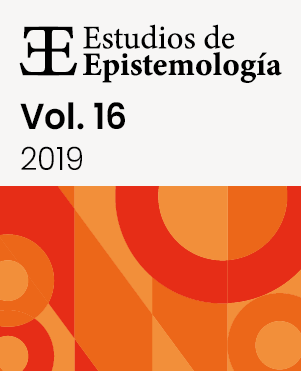
Published 2019-03-01
Keywords
- Teleology,
- Explanation,
- C.S. Peirce,
- Final Causation,
- Natural Selection
How to Cite

This work is licensed under a Creative Commons Attribution-NonCommercial-NoDerivatives 4.0 International License.
Abstract
Life science practitioners often rely on the goal-oriented character of a system or process in order to fully understand the functions performed by its constituent elements (Allen & Neal, 2019). However, many philosophers of science and specialists in biological sciences remarked that this type of statements and explanations present certain particularities that, at least, rendered questionable the satisfaction of the prevailing canons of empirical adequacy in the epistemological reflection on scientific explanation.
For this reason, an attempt was soon made to clarify how Darwin's theory of evolution would eliminate any kind of dubious residue in the content of teleological statements and explanations, such as, for example, the appeal to "final causes". However, the conceptual and terminological complications that arise in the heart of these debates as a result of the suspicion towards any kind of allusion to final causes could perhaps be cleared up if versions of the notion of final cause, such as that of C. S. Peirce, elaborated after Darwin's work, were taken into consideration.
